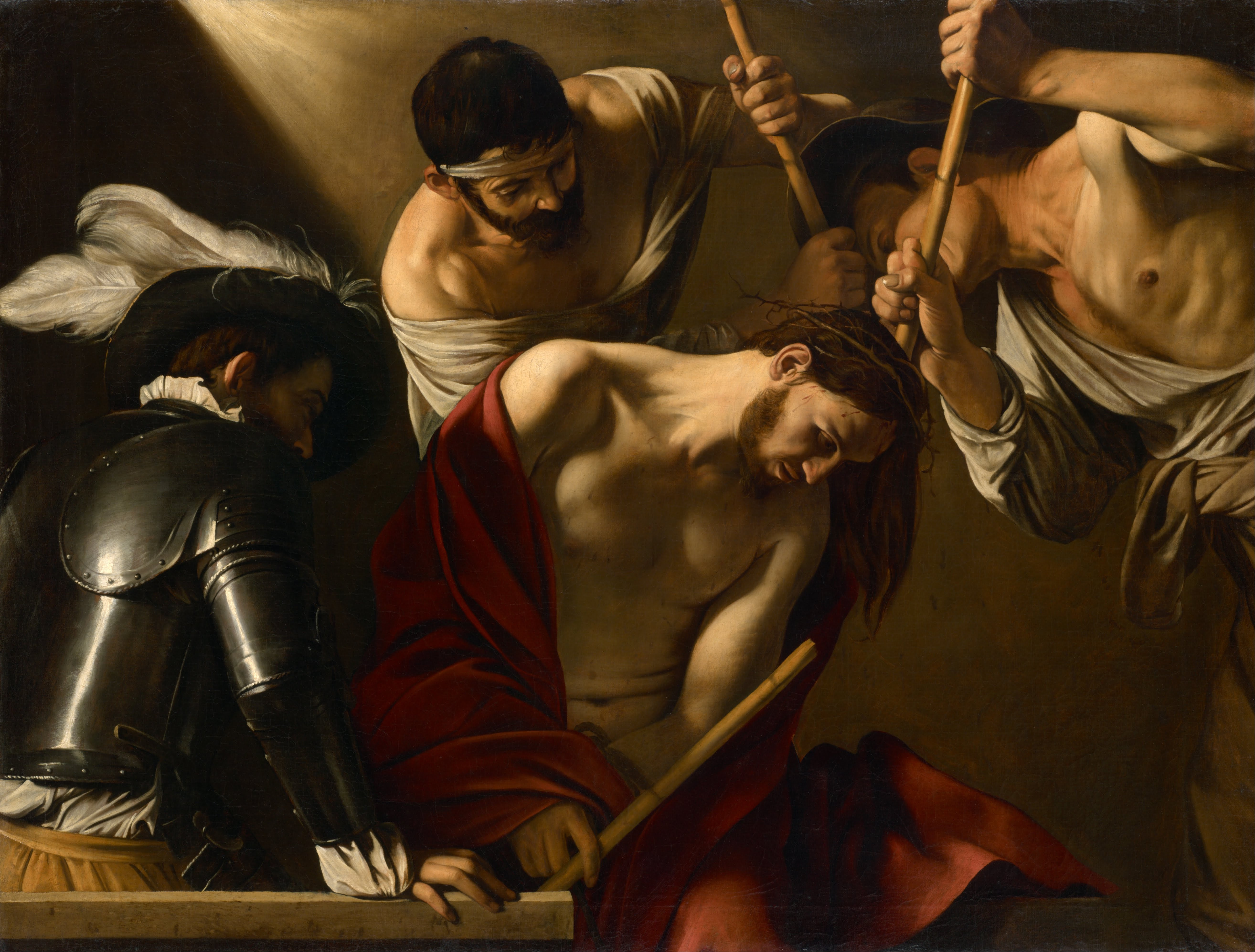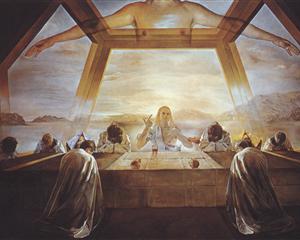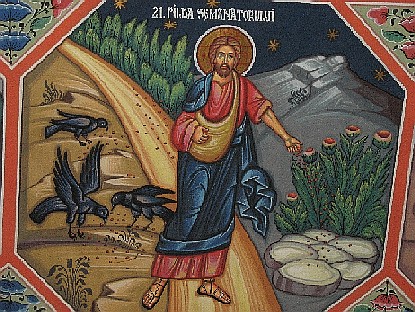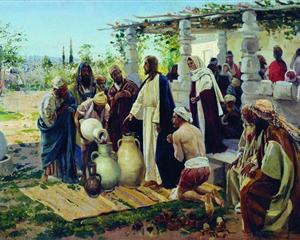This post is by Brody Stewart, Verbum Marketing and Promotions Coordinator.
For today’s reflection, I’d like to share an excerpt from one of St. John Chrysostom’s homilies. These words of the famed “golden-mouthed” orator are sure to be more moving than my own.

Weaving a crown out of thorns, they placed it on his head, and a reed in his right hand. And kneeling before him, they mocked him, saying, “Hail, King of the Jews!” They spat upon him and took the reed and kept striking him on the head. And when they had mocked him, they stripped him of the cloak, dressed him in his own clothes, and led him off to crucify him (Matthew 27:29, NABRE).
What plea shall we have after this for being moved by injuries, after Christ suffered these things? For what was done was the utmost limit of insolence. For not one member, but the whole entire body throughout was made an object of insolence; the head through the crown, and the reed, and the buffeting; the face, being spit upon; the cheeks, being smitten with the palms of the hands; the whole body by the stripes, by being wrapped in the robe, and by the pretended worship; the hand by the reed, which they gave him to hold instead of a sceptre; the mouth again by the offering of the vinegar. What could be more grievous than these things? What more insulting?
For the things that were done go beyond all language. For as though they were afraid lest they should seem to fall short at all in the crime, having killed the prophets with their own hands, but this man with the sentence of a judge, so they do in every deed; and make it the work of their own hands, and condemn and sentence both among themselves and before Pilate, saying, “His blood be on us and on our children,” and insult Him, and do despite unto Him themselves, binding Him, leading Him away, and render themselves authors of the spiteful acts done by the soldiers, and nail Him to the cross, and revile Him, and spit at Him, and deride Him. For Pilate contributed nothing in this matter, but they themselves did every thing, becoming accusers, and judges, and executioners, and all.
And these things are read amongst us, when all meet together. For that the heathens may not say, that ye display to people and nations the things that are glorious and illustrious, such as the signs and the miracles, but that ye hide these which are matters of reproach; the grace of the Spirit hath brought it to pass, that in the full festival, when men in multitude and women are present, and all, as one may say, at the great eve of the passover, then all these things should be read; when the whole world is present, then are all these acts proclaimed with a clear voice. And these being read, and made known to all, Christ is believed to be God and, besides all the rest, is worshipped, even because of this, that He vouchsafed to stoop so much for us as actually to suffer these things, and to teach us all virtue.
Saint John Chrysostom, Homilies on the Gospel of Saint Matthew, Homily 87.




